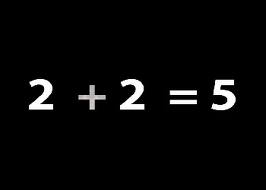Something does not add up. Bear with me while I try to sort out these recent news stories.
Three days ago I read an NPR story about Egyptian activists calling for the removal of religion from the identity card that all Egyptians have to carry (“My Religion is None of Your Business”). Aalam Wassef has produced and distributed a video with these lyrics: “The racist republic of Egypt, the sectarian republic of Egypt. It’s ingrained on your ID, and this is where the trouble starts.” “Sectarian” is the article’s operative word.
Tim Tebow was cut by the New York Jets and apparently no other NFL team is interested in him. One pundit’s reason for the lack of interest? Organizations don’t want the media circus that comes with Tebow’s publicly-displayed Christian faith. If only Tim just kept it to himself. What does it have to do with his playing football, anyway?
Yesterday’s Christianity Today blog (“The Beltway Believer”) by Timothy Dalrymple tells of Michael Cromartie and the Faith Angle Forum. Cromartie has been working to help the nation’s elite journalists interact in face-to-face conversation with evangelical Christian leaders. Dalrymple observes how their interacting with the likes of Rick Warren and Tim Keller is changing their opinions and the tone and content of their articles. So, good news here, but what I noticed was how ignorant those journalists were of people like Warren and Keller before this Forum began. They only knew the Pat Robertsons and the Jerry Falwells.
I’ve been puzzling over what happens to teenagers’ faith between high school and college. Various surveys have shown high schoolers generally expressing positive opinions about their faith and church experience back home. But something happens on the way to college. Many of those same students almost entirely stop practicing their faith once they get here. What is that about?
We can make partial sense of the phenomenon by reference to their newfound freedom. Nobody is making them get up and go to church, so they don’t. Another cause has to do with MTD (Moralistic Therapeutic Deism). I take these answers as helpful, but partial. Something else is going on.
So, four different stories but with a sub-text: religion is divisive and dangerous if held too strongly. Better to downplay it, marginalize it, tame it, sanitize it.
Still, I have questions. What makes sectarian violence “sectarian?” The answer seems obvious: Combatants combat because of competing orthodoxies. From this angle it looks like orthodox belief is the problem. Since religious orthodoxies deal with alleged ultimate truth and destiny, some people are determined to control other people and this is where the problem starts. The solution is to mute or even hide religious identity. This strategy can appear in many ways under many guises.
We have here what I think of as an attribution error in these narratives. The problem is attributed to something inherent in religion. Whatever that something is, it should be avoided. It is no wonder, then, that college students quickly catch on to the notion that their faith is an optional accessory, therefore can be easily laid aside or modified to suit their private, particular needs.
The attribution error reveals the bias that must be named and corrected. Religion is often portrayed as somehow the cause of the problem when the real problem is more fundamental: people are tempted to abuse power. We can do it through religious teachings or we can do it through entirely secular ones.


Pingback:Peer Minister Reblog: “The Distorting Power of a Flawed Narrative” by Stephen Rankin - Wesley United Methodist Church